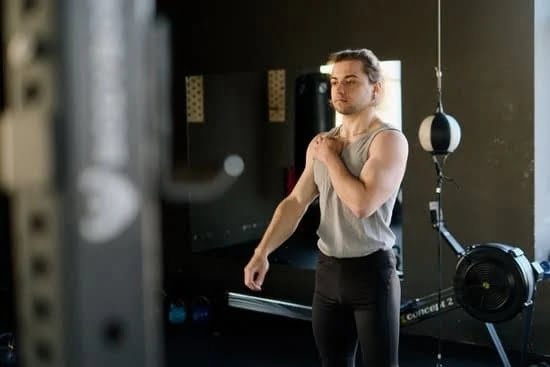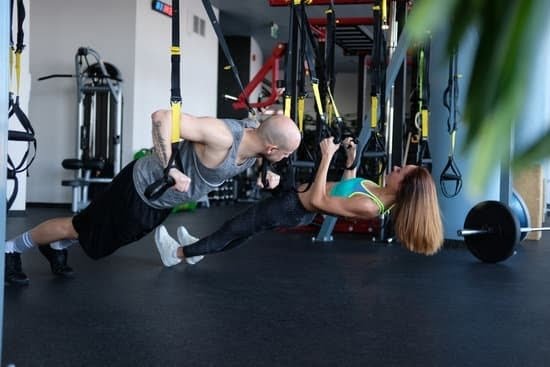Introduction
Asking questions to your personal trainer is important as it allows you to understand how they plan to help you reach your fitness and health goals. It also helps build a foundation of trust between the two of you, as you gain a better appreciation for their expertise and knowledge. Questions also provide insight into how your training sessions will be structured, what exercises will be incorporated in your program, and any modifications that may need to be made for safety or comfort. By asking the right questions, you can ensure that the time and energy invested in working with your personal trainer yields optimal results.
Goals
1. What kind of progress do you expect me to make with this program?
2. How will we measure results and track progress?
3. How often should I check in with you about my progress and goals?
4. Are there any safety precautions I should be aware of before starting a workout regimen?
5. Is there anything else that I should do or avoid outside of the routine to help me reach my goals?
6. Can you provide any nutritional guidelines or advice on how to eat properly while training?
7. Do you have any special tips or tricks that can motivate me to keep going during tough times?
Physical Readiness
A great question to ask your personal trainer about your physical readiness is, “What kind of measurements do you need to take in order to assess my current fitness level?” This will help them understand what sort of benchmark they can use to compare against future fitness tests. Additionally, you might want to inquire about the exercises and movements that they would recommend for you based on your age and activity level. Finally, It is important to understand their experience working with clients like you, so be sure to ask questions such as, “How long have you been training people with similar needs?” or “What sort of progress have past clients achieved under your guidance?” All of these questions can help inform you on what sort of personal trainer may be the right fit for you.
Workout Regimen
1. How often should I exercise?
2. What type of workout would be best for my fitness goals?
3. Do you have any advice on proper form and technique when doing the exercises?
4. What types of warm-up and cool-down activities do you recommend?
5. Is it all right to take breaks or rest between sets?
6. How can I measure progress over time to know if I am making gains?
7. Are there any health concerns or precautions that I should be aware of prior to performing certain exercises in my routine?
8. Do you provide diet and nutrition guidance as part of the training program?
9. Are there any particular exercises that are more suitable for achieving specific goals such as building strength or improving endurance?
10.What other resources (such as videos, apps, etc) might help me reach my goals with the workout plan provided by the trainer?
Professionalism
1. What kind of certifications or qualifications do you have?
2. Are these certifications current and up-to-date?
3. How long have you been a personal trainer?
4. Do you specialize in any particular type of training or client population (e.g., athletes, seniors, etc.)?
5. What individual results have you achieved for your clients?
6. What methods do you use to track progress?
7. How will our sessions be structured, and what types of exercise will be involved?
8. Do you provide nutritional guidance and meal planning services as part of your program?
9. Will I be able to reach out to you with questions outside of our sessions?
Experience
1. How long have you been a personal trainer?
2. What certifications and credentials do you have?
3. Do you specialize in any particular type of training (e.g., weight loss, strength training, injury rehabilitation)?
4. Have you worked with clients with similar goals as mine before?
5. Are there different techniques or approaches you use for reaching the same goal?
6. How often should I expect to work out with you?
7. How will you measure progress?
8. What should I expect regarding intensity and duration of workouts?
9. Do you offer nutritional guidance or meal plans as part of your services?
10. Can I receive feedback on my form while exercising to ensure safety and maximize results?
Specialized Knowledge
1. Do you have any qualifications or certifications?
2. Are you familiar with the latest health and fitness research?
3. What training methods do you use?
4. How do you measure progress when training clients?
5. Do you follow a particular fitness philosophy or approach to client health and fitness?
6. Have you ever worked directly with individuals like me (based on my specific health or fitness needs)?
7. How many years of experience have you had as a personal trainer?
8. What kind of safety precautions do you take with your clients during exercise?
9. Do you provide nutrition guidance in addition to exercise plans?
10. Can I speak with any of your previous clients for references?
Support
Asking questions is an incredibly important part of any successful personal training relationship. It enables you to have a better understanding of your personal trainer’s goals and methods, as well as helping to ensure that they are dedicated to your success. Questions can help you clarify any confusion you may have about your current exercise program or nutrition plan, giving you the opportunity to make sure it is tailored correctly for your needs and objectives. Additionally, asking questions about your progress can give valuable feedback for the trainer, ensuring that their efforts are having the desired effects on your fitness journey. Ultimately, inquiring with questions helps foster an environment of trust and mutual accountability between trainer and trainee, allowing both parties to work together more effectively in achieving fitness success.
Conclusion
Asking questions to your personal trainer is an important part of the process, as it will help you get the most out of each session. It will enable you to better understand the tools and techniques that your personal trainer is using and how to best apply them for maximum results. Additionally, some questions may allow you to uncover key insights about your anatomy, current physical condition, or other factors that can be used to customize training plans and achieve maximum results. Finally, asking questions creates a space for open dialogue between both parties which can foster a positive relationship helping ensure the best possible experience.

Passionate about providing useful information to anyone with an interest in the field of Personal Training, I strive to pass on to our readers quality information and to answer any questions about Personal Trainers, the work they do and how to become one.





